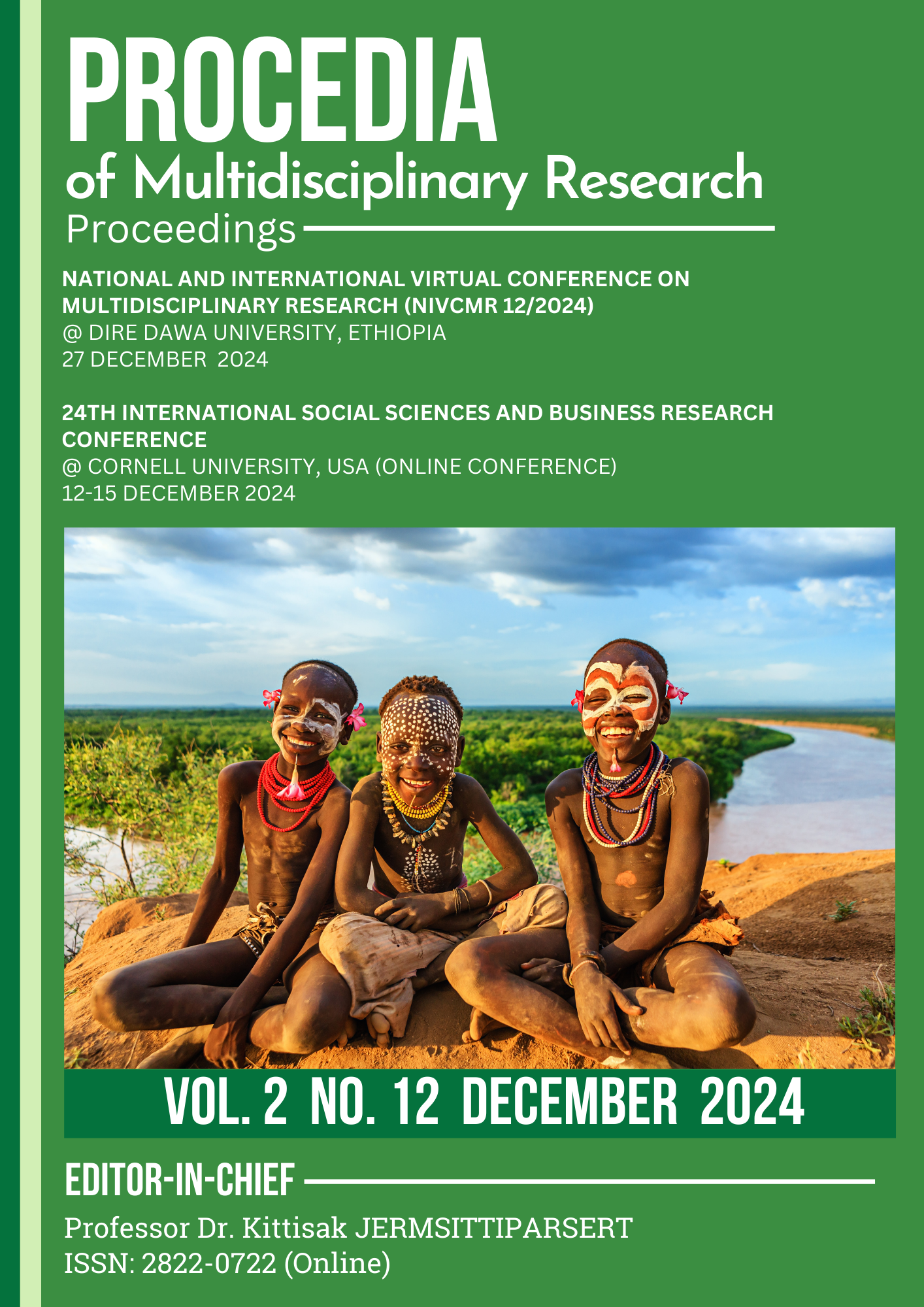ANALYSIS OF THE IMPACT OF CHINA'S 'ONE BELT, ONE ROAD' INITIATIVE ON ECONOMIC DEVELOPMENT AND ENVIRONMENTAL SUSTAINABILITY IN THE MEKONG RIVER BASIN: A CASE STUDY OF CAMBODIA AND LAOS
Abstract
This research employs a mixed-methods approach, integrating both quantitative and qualitative methodologies, to analyze the impact of China’s Belt and Road Initiative (BRI) on economic development and environmental sustainability in the Mekong River Basin, specifically focusing on Cambodia and Laos. The primary objectives of the study were to assess the economic benefits of the BRI projects and to examine the environmental challenges they present. Data collection was conducted from January to June 2024, utilizing questionnaires for quantitative data and in-depth interviews for qualitative insights. Quantitative data were analyzed using descriptive statistics and regression analysis, while qualitative data were interpreted through content analysis and deep thematic interpretation. The findings reveal that while the BRI has positively contributed to economic development in both Cambodia and Laos, it has also resulted in significant negative impacts on environmental sustainability, particularly in terms of water quality, biodiversity, and forest cover. The study recommends policy reforms aimed at promoting sustainable development and enhancing community participation in decision-making processes to ensure that BRI projects align with both economic and environmental objectives in a balanced manner.
Downloads
Published
Issue
Section
License

This work is licensed under a Creative Commons Attribution-NonCommercial-NoDerivatives 4.0 International License.







.png)


